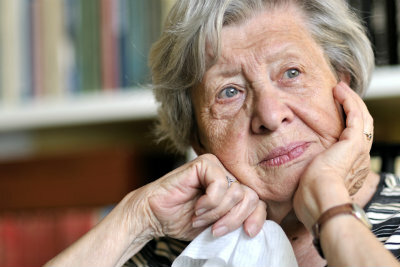Recognizing and Reducing Anxiety


Recognizing and Reducing Anxiety
Anxiety, an experience of tension and apprehension, is an ordinary response to a threat or danger. Excessive anxiety that causes distress or interferes with daily life is not a normal part of the aging process. Michael Fresé, Ph.D., is a clinical psychologist specializing in geropsychology. He recently sat down with e-Connections to talk about the signs and symptoms of anxiety among seniors.

Have you experienced heart palpitations, feeling out of breath, or a sensation of being suffocated? Are there times when you sense numbness or tingling in your fingers, chills or hot flashes, restlessness? How about difficulty concentrating, memory gaps, irritability, or feeling like you are at the end of your rope? If so, you might be experiencing anxiety or have an anxiety disorder.
Among older adults, many worry about their increasing number of health issues, family, limited finances, and their own mortality. More often than not, these worries can become exacerbated when individuals experience either a mental or physical decline and a loss of autonomy. When the anxiety is at a level which causes significant impairment in daily functioning and is a source of distress, it is considered an anxiety disorder.
Some of the causes of anxiety in older adults include losses during the aging process (loss of autonomy, health, intellectual capacity, loved ones) as well as having thoughts of danger and vulnerability associated with losses.
Similar to depression, when asked, many older adults deny feeling anxious. Individuals might admit to feeling overwhelmed, worried, having a short fuse, or experiencing physical sensations that they attribute to old age. In addition to the symptoms listed above, it is important to inquire about the following:
- Appetite: individuals who are anxious might overeat to calm themselves, resulting in weight gain or they may lose weight by skipping meals
- Going out: anxious individuals might stay at home to avoid their fears
- Interests: those who are anxious have a difficult time finding pleasurable activities as they become more fearful
- Physical complaints: as older adults are more likely to report physical causes of their anxiety symptoms (as well as experience medical conditions that might overlap the symptoms of anxiety), asking about such physical complaints as chest pain or shortness of breath is important
- Sleep: People experiencing anxiety might sleep to avoid their fears or have difficulty sleeping due to ruminating about imagined or exaggerated fears
- Social isolation: social contact and activity is important for lifting a person’s spirit and calming their fears; however, sometimes a person’s anxiety is such that they find a false sense of security in being alone, which can increase their level of anxiety and result in a vicious cycle.
You might be saying to yourself, “that sounds like me!,” or “that sounds like someone I know!” and you are curious to know what you can do to help yourself or a loved one.
- For some, a family member or friend might be able to provide comfort and reassurance. For others, being engaged in creative, social, or other activities that are of interest can be helpful. Getting to the source of the anxiety and dealing with it directly is very important. For example, helping older adults deal with concerns about being a burden, financial matters, and health issues can make a difference.
- Psychotherapy such as cognitive behavioral therapy, problem solving, and interpersonal psychotherapy are all effective ways of helping those with anxiety. Psychoeducation and support in managing anxiety in structured ways, such as progressive muscle relaxation and deep breathing, have been shown to reduce anxiety.
- When psychotherapy alone isn’t enough, psychiatric medications such as Ativan, Klonopin, or Xanax might be prescribed by a psychiatrist.
If you find yourself feeling anxious, overwhelmed, or worried, don’t hesitate to ask for help, whether from a family member, friend, or healthcare professional. Anxiety can be managed and treated, and your quality of life can be improved.